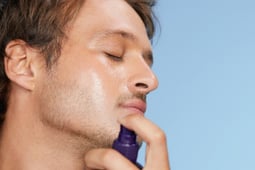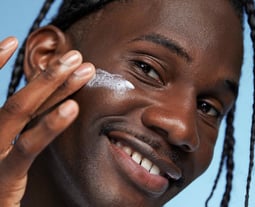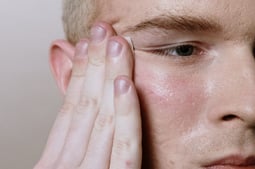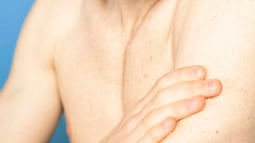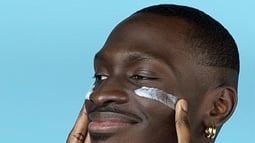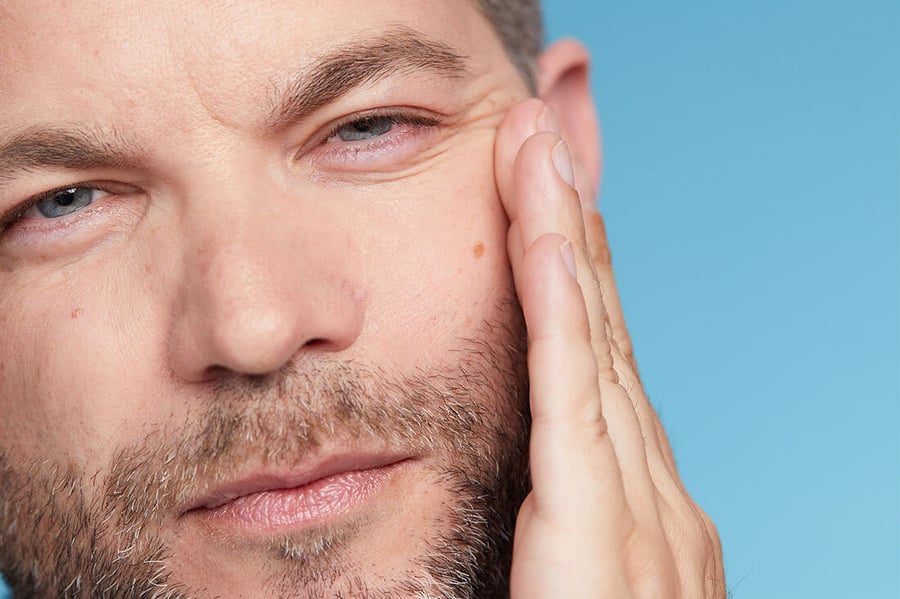
Dry, Oily, Combination… How do I recognise my skin type?
Photos Rachelle Simoneau
Words Nolyne Cerda
Share the article on
Taking care of your skin is a good thing. But to be effective, it’s better to know the details. So is your’s more oily, a combination, clear, or dry skin? Horace helps you learn how to know.
Understanding the physiology of your epidermis is not always easy. Although our genes most often define our skin type, external and internal elements can modify it over time. Stress, poor diet, disease, pollution, the sun, hormonal imbalances or fatigue are primary reasons. It is possible to find one of four well-known types: normal, dry, oily or combination skin. Mens’ epidermis are generally thicker and have more sebaceous glands. As a result, the skin is most often oily or combination, but nothing prevents it from being sensitive and / or dehydrated.
The four types of skin
Normal skin is obviously more balanced. Neither too dry or fatty, the T zone (forehead, chin and nose) may be a bit shiny but there is no major imbalance between the sebum and hydration. The skin is comfortable and supple, despite the appearance of some imperfections.
Dry skin produces less sebum because it doesn’t contain enough lipids to maintain a good level of moisture. Its protective barrier is weaker and less resistant to attack. The appearance is duller, the pores are tight and mark easily (wrinkles, fine lines, and spots). The degree of dryness can manifest itself as simple redness or itching. It is then a question of hydrating and nourishing on a daily basis.
Combination skin types have an oily T zone, while having dry to normal cheeks. This is due to an overproduction of sebum, together with a deficiency of lipids in certain areas. The pores are larger, with more blackheads. It is then necessary to regulate the sebum while providing hydration.
Oily skin produces a lot of sebum, including seborrhea, which is an overproduction. The skin is thicker and resilient but shiny, with large pores. Blackheads and blemishes are present, hence the importance of choosing non-comedogenic products to regulate and purify.
Things to consider
To fully understand which type you have, ask yourself whether your skin constantly feels tight and dries up, never or only after you showe. If it glows, consider where (T zone or beyond)? So, if it never feels tight, or shiny after a shower, your skin is normal and slightly dehydrated. On the other hand, if it never pulls but shines on the T zone, it is a combination; and everywhere is fatty.
Do not confuse dryness and dehydration, nutrition and hydration.
Having dry skin is synonymous with a lack of fat (lipids). Being hydrated can affect all skin types. It is therefore possible to have a combination, or oily and dehydrated skin. Dehydration affects the dermis, the deeper skin layer, and is caused by a lack of water and not fat. For dry skin, opt for a rich moisturiser like our Rich face moisturiser. For dehydrated skin, bet everything on a high and low molecular weight hyaluronic acid to hydrate, and not nourish on the surface, and add depth.
